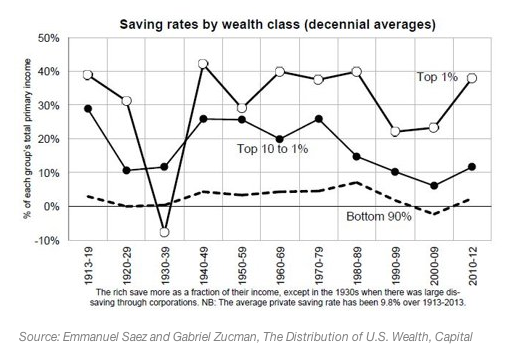- Joined
- Mar 27, 2014
- Messages
- 63,563
- Reaction score
- 33,567
- Location
- Tennessee
- Gender
- Male
- Political Leaning
- Undisclosed
I've heard that argument before but i dont see how its true. A sales tax taxes disposable income and the rich have far more dispoable income than the poor.
Sent from my SM-G965U using Tapatalk
It's simple. The wealthy save a great deal of their income. Here's one calculation.

So the top 1% save 40% of their income on average. The top 1/10th of 1% might save 80-90% or higher. So do the math. If the consumption tax is 20%, and the bottom 90% spend all their income on average, they'll pay a tax equal to 20% of income. The top 1% will pay only 12% of income in taxes (60% of income is consumed X 20% = 12% of income). The top 1/10th of 1% perhaps only 2%-4% of income.
